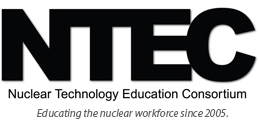N32: Experimental Reactor Physics
This unit aims to:
- Consolidate the theoretical understanding of the fundamental aspects of reactor physics and dynamics by practical experimentation.
- Provide understanding of fundamental reactor parameters and their effect on a reactor operation.
- Demonstrate measurement methods for various reactor phenomena such as neutron flux, delayed neutrons, control rod calibration and rod worth, reactivity feedback.
- Emphasise safety aspects of reactor operation and give practical experience in radiation detectors and surveying levels of radiation for a reactor at full power.
- Understand reactor instrumentation and control through hands-on reactor operation.
Brief description of the unit
This unit is based at research reactors operated by NTEC delivery partners in the Czech Technical University in Prague and the Atomic Institute of the Austrian Universities in Vienna. The reactors are low-power research reactors which are specifically used for training and research. There is no such facility in the UK that allows access for university students. The unit consolidates the theoretical understanding received from the N01 (Reactor Physics & Systems) unit and the N03 (Radiation & Radiological Protection) unit (if taken) by hands-on practical experience on a working reactor. The reactor neutronics and dynamics are demonstrated through experimental measurements of neutron fluxes, control rod calibrations, reactivity measurements and instrument calibration. An understanding and appreciation of the instrumentation and controls of a reactor are gained during the experiments and through hands-on operating experience at the reactor control panel. The analysis, interpretation, presentation and review of the experimental data obtained in the practical exercises are important elements of the unit. Safety aspects of reactor operation and fuel handling and inspection are emphasised.
Intended Learning Outomes
| Measure reactor properties such as neutron flux and reactivity, and calibrate equipment including control rods and reactor instruments |
| Analyse and interpret data from reactor physics and dynamics measurements |
| Assess the condition of the reactor based on measured data |
| Perform a safe approach to critical state for an unknown fissile system |
| Demonstrate the correct process for starting and operating a low-power reactor |
